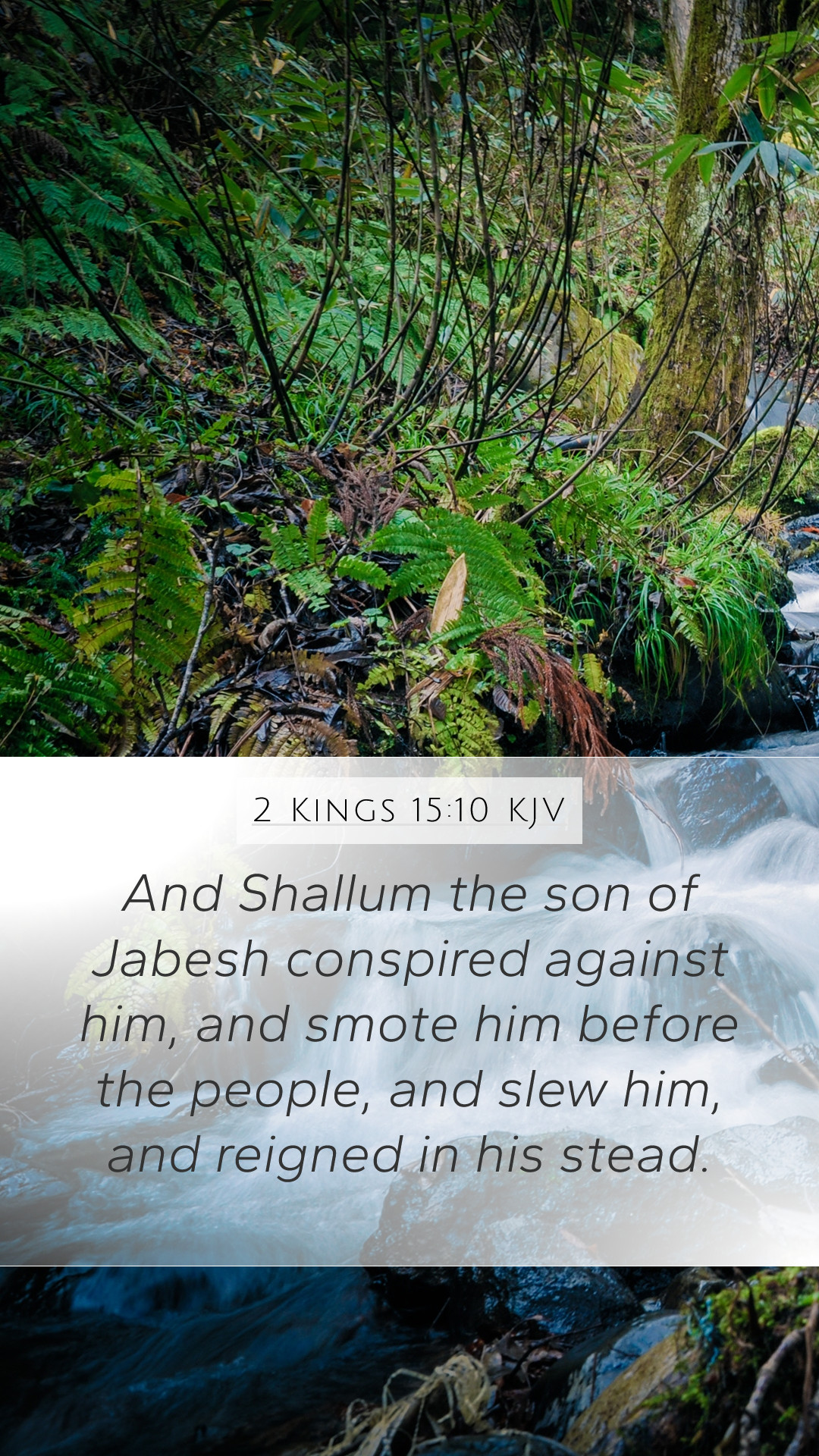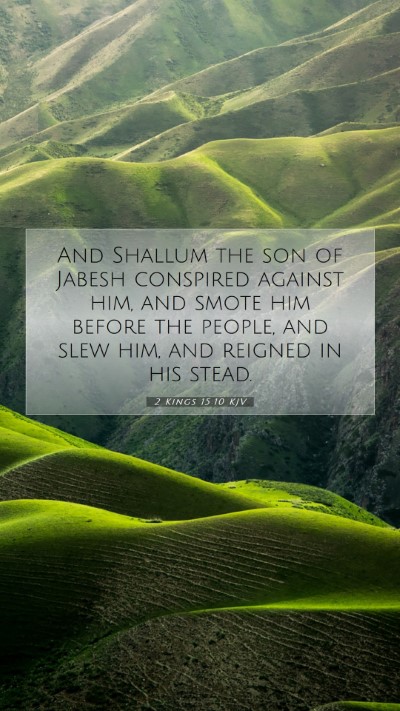Understanding 2 Kings 15:10
Verse: "And Shallum the son of Jabesh conspired against him, and smote him before the people, and killed him, and reigned in his stead." (2 Kings 15:10, KJV)
Background and Context
This verse is set in the historical narrative of the kings of Israel, detailing a time of political instability and treachery. Shallum, who sought to gain power, acted against King Zechariah, fulfilling a cycle of violence and conspiracy that was characteristic of Israel's monarchy. This passage highlights the tumultuous nature of leadership in Israel during this period.
Commentary Insights
-
Matthew Henry: Henry emphasizes the moral degradation evident in the leadership of Israel. He notes that Shallum’s actions are a reflection of Israel’s departure from faithfulness to God, where political ambition led to the shedding of innocent blood. It serves as a cautionary tale about the consequences of unchecked ambition and moral decline.
-
Albert Barnes: Barnes points out the rapid changes in leadership during this era. He observes that Shallum’s coup is significant as it reflects the instability within Israel’s governance. The action taken against Zechariah underscores a pattern of conspiracies and assassinations that plagued the kings of Israel. This emphasizes the precarious nature of power and the volatile political environment.
-
Adam Clarke: Clarke provides additional historical context, noting that Shallum's rise was not merely opportunistic but part of a broader narrative of rebellion against God’s appointed leaders. He stresses the divine sovereignty in allowing such events as a judgment on Israel for their disobedience. Clarke suggests that studying this event reveals God’s providential hand even amidst chaos.
Thematic Elements
The act of conspiratorial murder in this verse raises several themes for reflection:
- Power and Ambition: Shallum’s actions indicate how ambition can lead individuals to commit heinous acts. It is a warning against allowing ambition to supersede moral values.
- Moral Corruption: The willingness to conspire against a king reveals the severe moral decay within the leadership. This verse invites readers to consider the spiritual state of a nation that permits such behaviors.
- Consequences of Rebellion: Zechariah's death becomes emblematic of the larger consequences faced by Israel when they rebel against God’s laws and appointments, leading to instability and disaster.
Application of the Verse
As believers seeking to extract meaning from scripture, this verse encourages us to:
- Reflect on the nature of our ambitions and authority.
- Consider the moral implications of our actions and decisions.
- Seek to understand the historical context when studying difficult passages, providing insight into contemporary relevance.
Cross References
Several other scriptures may provide additional insight or parallel themes to 2 Kings 15:10:
- 1 Kings 16:10-12: Discusses the violent overthrow of King Baasha.
- 2 Kings 15:8: Mentions the unfaithfulness of Jeroboam’s lineage, contributing to instability.
- 2 Kings 14:29: Highlights the previous reigns and the spectrum of leadership in Israel.
- 2 Chronicles 22:3-4: Illustrates the influence of evil leadership on the nation.
- Proverbs 28:15: States that a wicked leader is like a roaring lion.
- Isaiah 1:23: Talks about rulers and leaders being rebellious children.
Conclusion
2 Kings 15:10 serves not only as a historical account but also as a poignant reminder about the nature of ambition, the moral state of leadership, and the consequences of straying from divine authority. Through studying this verse and the commentaries provided, we can gain valuable Bible study insights and a deeper understanding of the significant implications of Scripture.


